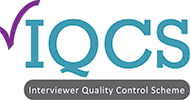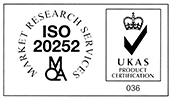Introduction
Definition of Market Research Questionnaires
Market research questionnaires are a set of questions designed to collect data from a target audience. These questionnaires are used to gain insights into customer behavior, preferences, and opinions. They can be used to measure customer satisfaction, identify market trends, and develop marketing strategies.
Benefits of Market Research Questionnaires
Market research questionnaires can provide valuable insights into customer needs and preferences. They can help businesses make informed decisions about their products and services. Additionally, questionnaires can help businesses identify new opportunities, develop more effective marketing strategies, and improve customer service.
Overview of the Types of Market Research Questionnaires
There are several types of market research questionnaires, including online (CAWI) surveys, focus groups, interviews, telephone (CATI) surveys, and face-to-face (CAPI) surveys. Each type of questionnaire has its own advantages and disadvantages and can be used to collect different types of data.
Creating an Effective Market Research Questionnaire
Identifying Goals and Objectives
Before creating a market research questionnaire, it is important to identify the goals and objectives of the survey. This will help ensure that the questions are relevant and focused on the desired outcome. Additionally, it will help to ensure that the data collected is accurate and useful.
Developing Questions
Once the goals and objectives of the survey have been identified, the next step is to develop the questions. Questions should be clear and concise, and should focus on the desired outcome. Additionally, questions should be tailored to the target audience.
Formatting the Questionnaire
The format of the questionnaire should be easy to understand and follow. Questions should be organised into sections, and each section should be labeled clearly. Additionally, questions should be numbered to make it easier for the respondent to follow.
Testing the Questionnaire
Once the questionnaire has been created, it should be tested to ensure that it is effective and easy to use. This can be done by having a test group of respondents complete the questionnaire and providing feedback. This will help to identify any problems or areas for improvement.
Collecting and Analysing Data
Once the questionnaire has been tested and finalised, it can be distributed to the target audience. The data collected should be analysed to identify trends and insights. This data can then be used to make informed decisions about products, services, and marketing strategies.
Best Practices for Market Research Questionnaires
Keep Questions Short and Simple
Questions should be kept short and simple to ensure that respondents understand them. Long and complex questions can be confusing and may lead to inaccurate data. Additionally, respondents may become frustrated and abandon the questionnaire.
Avoid Leading Questions
Questions should be neutral and unbiased to avoid influencing the respondent’s answer. Leading questions may lead to inaccurate data, as respondents may be influenced by the wording of the question.
Ask Relevant Questions
Questions should be relevant to the goals and objectives of the survey. Irrelevant questions can lead to inaccurate data and may confuse the respondent. Additionally, irrelevant questions may waste the respondent’s time.
Offer Clear Response Options
Respondents should be given clear and concise response options. Ambiguous response options can lead to inaccurate data and may confuse the respondent. Additionally, respondents may become frustrated and abandon the questionnaire.
Offer an Opt-Out Option
Respondents should be allowed to opt out of the survey at any time. This will ensure that the respondent is not forced to complete the questionnaire and that their data is collected with their consent.
Examples of Market Research Questionnaires
Online Surveys (CAWI)
Online surveys are a popular type of market research questionnaire. They are easy to create and distribute and can be used to collect a wide range of data. Additionally, online surveys can be used to reach a large number of respondents quickly and easily.
Focus Groups
Focus groups are a type of market research questionnaire that involves a group of people discussing a particular topic. This questionnaire can be used to gain insights into customer opinions and preferences.
Interviews
Interviews are a type of market research questionnaire that involves a one-on-one conversation between the researcher and the respondent. This questionnaire can be used to gain a deeper understanding of customer needs and preferences.
Telephone Surveys (CATI)
Telephone surveys are a type of market research questionnaire that involves calling respondents on the phone. This type of questionnaire can be used to collect data quickly and easily.
Paper Surveys
Paper surveys are a type of market research questionnaire that involves distributing paper questionnaires to respondents. This type of questionnaire can be used to collect data in a cost-effective manner.
Conclusion
Summary of Benefits of Market Research Questionnaires
Market research questionnaires can provide valuable insights into customer needs and preferences. They can help businesses make informed decisions about their products and services, identify new opportunities, develop more effective marketing strategies, and improve customer service.
Summary of Best Practices for Market Research Questionnaires
When creating a market research questionnaire, it is important to keep questions short and simple, avoid leading questions, ask relevant questions, offer clear response options, and provide an opt-out option.
Summary of Types of Market Research Questionnaires
There are several types of market research questionnaires, including online surveys, focus groups, interviews, telephone surveys, face-to-face, and paper surveys. Each type of questionnaire has its own advantages and disadvantages and can be used to collect different types of data.
Call to Action
Market research questionnaires are an effective tool for collecting data from customers. By following the best practices outlined above, businesses can create effective questionnaires that will provide valuable insights into customer needs and preferences.
To find out how Critical can help you please contact Ben Farr.



